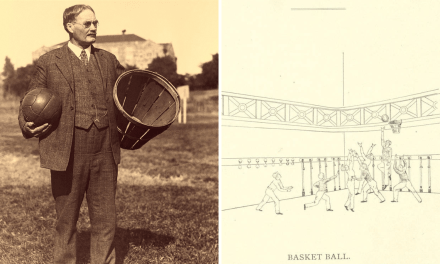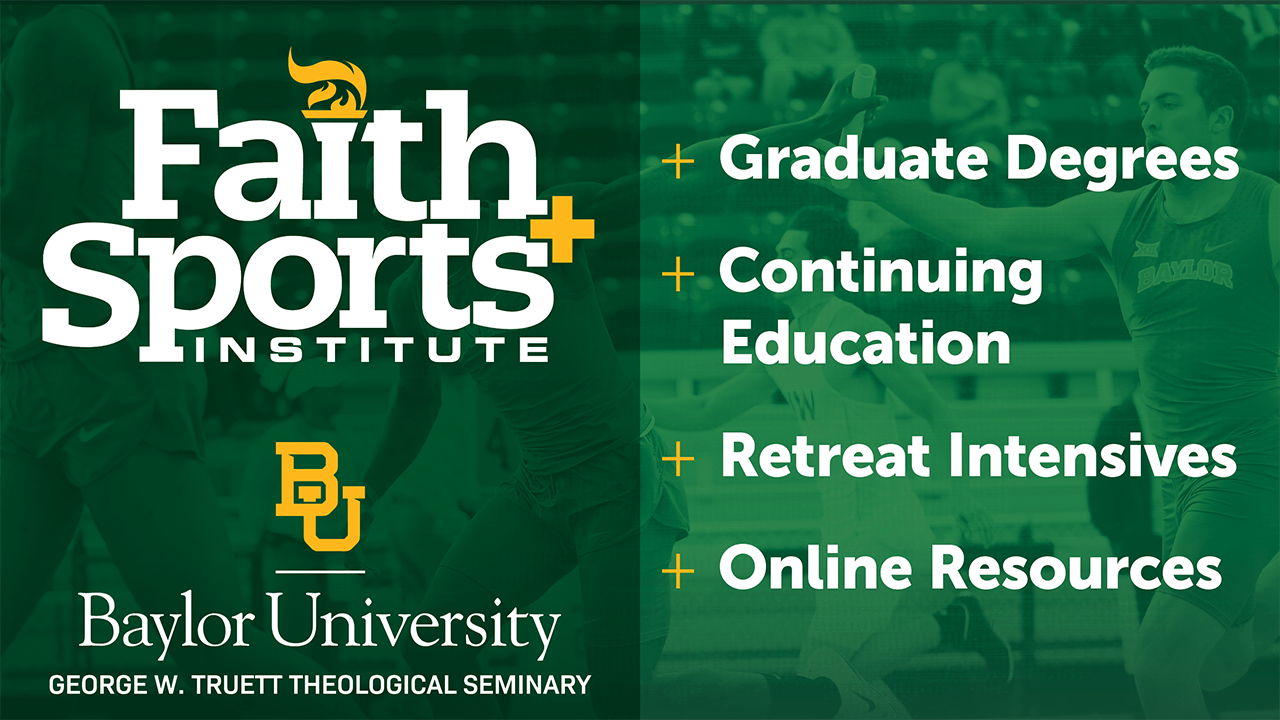Editor’s note: To help Christian sportspeople navigate these uncertain times, we will be publishing a series of posts focused on what it looks like to “Run The Race Well” in a time of coronavirus and quarantine. We will be getting contributions from a variety of perspectives: theologians, philosophers, athletes, coaches, mental health professionals, seminary students, and more. This post comes from Chris Hobbs, Director of Athletics at The King’s Academy in West Palm Beach, Florida.
Chris Hobbs
Survive and advance. Many sports fans recognize that simple phrase. It was coined by Jim Valvano as he and his North Carolina State men’s basketball team went on an improbable nine-game journey to the 1983 NCAA national championship. In seven of those nine games, Coach Valvano’s team trailed in the final minute. When a reporter asked Valvano how his team continued to win, Valvano instinctively replied: focus on the game at hand, survive it, and advance.
The stakes are much higher today for leaders as they seek to guide their organizations through the unprecedented challenges of a global pandemic. Still, as the Director of Athletics at a wonderful school in South Florida, I’ve found myself turning to Valvano’s advice. Our seasons may be on hold. We may not be able to play games, have practices, or lift weights. I may not have answers for everything. But I do know this: we have to find a way to survive and advance.
Here are three ways I’m trying help our athletic program do that.
COMMUNICATE REGULARLY
Andy Stanley in Visioneering identifies clear communication as the fastest way for leaders to draw in followers. The longer I lead, the more I think that communication is the most important thing a leader does. Every email, text, phone call, and social media post matters. But while communication is always important, communication during a crisis is different. It has to be more regular than times of stability, while also recognizing reality. It is not business as usual so the communication cannot be business as usual.
I try to use as many mediums as necessary to communicate with my people. But some forms of communication might be better than others right now. Dr. Eric Goldstein, a sports psychologist for the University of Miami, presented recently on the topic of mental health when communicating during crisis. Goldstein discouraged weekly email updates for the time being. “No one is reading them,” he said, “and if they do, they think you’re an emotionless zombie.” I love a good weekly, detail-oriented email, but during crisis that form of communication does little to make people feel connected to their leader.
CONNECT AUTHENTICALLY
Communicating regularly sets the table for connecting authentically. The authenticity of the connection is facilitated by the leader in two ways: accessibility and question-asking. Bill Robinson in Incarnate Leadership is helpful here. He highlights accessibility as one of the ways that Jesus led in his earthly ministry. Jesus was accessible to little children in Matthew 19, a woman with a blood disease in Luke 8, and ten lepers in Luke 17. All these individuals with needs were allowed to approach Him, but only because He was accessible.
A leader who is communicating regularly will have an active cell phone and inbox. But you cannot have the same depth of connection with everyone. Prioritize the people that you are directly responsible to lead and be especially accessible to them. For me, that is my wife, children, directors, and varsity head coaches. When they call, text, or email, I connect. I want them to know that I am accessible.
I also try to ask great questions—that is, questions that try to get at the heart of what my people really think. And I learn from ideas and leadership strategies that others have developed. Michael Stanier in The Coaching Habit encourages A.W.E. questions: following up a response with “and what else?” Another model from James Kouzes’s and Barry Posner’s The Leadership Challenge encourages leaders in some situations to try to LBFA, or Lead by Fooling Around. There are a lot of ways for a leader to connect authentically with the people they are serving. During a crisis, try them all.
PIVOT QUICKLY
An intelligent basketball fan will tell you that a well-used pivot can put a player in better position to use their skills. The reverse is also true. A player that can’t pivot will never be in position to demonstrate their skill set.
One way for leaders to pivot quickly is with plans that involve short timetables. This enables action and feedback. The excellent book, Disrupt Yourself, describes immediate feedback as the key to fast progress. If you need to redirect, it’s much easier when you are in motion and gathering feedback at the conclusion of short 1-2 week plans.
Another key is to embrace an online presence and learn new uses for it. There are three types of people in 2020: digital refugees (don’t understand it, don’t want to); digital immigrants (remember life without it, have adapted); digital natives (do not know a life without it, but they still might not know how to effectively use it). I list these three widely-used categories to give awareness. Awareness is the first step to solving ignorance. It’s helpful to know who you are. Still skeptical? Leadership guru, Carey Nieuwhof, puts it this way; “If you don’t think online matters, ask Sears if they think Amazon matters.” Get online and develop new skills and understanding so that you can keep pivoting.
If communicating, connecting, and pivoting are three keys for leaders who want to survive and advance, undergirding all three should be another habit: drinking deeply from God’s Word. Proverbs 1:7 tells us the beginning of all knowledge is the fear of the Lord. Proverbs 4:23 tells us that the heart is the wellspring of all life and we should guard it by meditating on His word. Every single thing we do and every role we hold is enhanced when our knowledge of the Creator grows. This includes leading in a time of crisis.
Coach Valvano went on to battle far more difficult things than the 1983 Houston Cougars, as formidable as they were. He fought courageously with cancer. Although he eventually lost that fight, he left a legacy that carries on today—a legacy that is evident in the inspiration he provides to those of us facing our own struggles. “Life changes when you least expect it to. The future is uncertain,” he said near the end of his life. “So, seize this day, seize this moment, and make the most of it.”
Survive and advance, indeed.
 About the Author: Dr. Chris Hobbs is the Director of Athletics at The King’s Academy in West Palm Beach, Florida. In 2017 he earned certified master athletic administrator status from the NIAAA. In 2018, he was named a top 40 Under 40 Leader in the sports industry by Coach and AD magazine. In 2019, he was named the Varsity Brands / BSN National High School Athletic Director of the Year. He holds a master’s degree in Sports Coaching from the United States Sports Academy and a Doctor of Education from Liberty University where he wrote a dissertation on the leadership behaviors of athletic administrators and its correlation with coaching efficacy. He regularly presents at conferences and special events, appears on podcasts, and writes on living a persistent, intentional life on his blog, ‘Bite Down and Don’t Let Go.’ He can be reached on twitter @Dr_ChrisHobbs.
About the Author: Dr. Chris Hobbs is the Director of Athletics at The King’s Academy in West Palm Beach, Florida. In 2017 he earned certified master athletic administrator status from the NIAAA. In 2018, he was named a top 40 Under 40 Leader in the sports industry by Coach and AD magazine. In 2019, he was named the Varsity Brands / BSN National High School Athletic Director of the Year. He holds a master’s degree in Sports Coaching from the United States Sports Academy and a Doctor of Education from Liberty University where he wrote a dissertation on the leadership behaviors of athletic administrators and its correlation with coaching efficacy. He regularly presents at conferences and special events, appears on podcasts, and writes on living a persistent, intentional life on his blog, ‘Bite Down and Don’t Let Go.’ He can be reached on twitter @Dr_ChrisHobbs.





